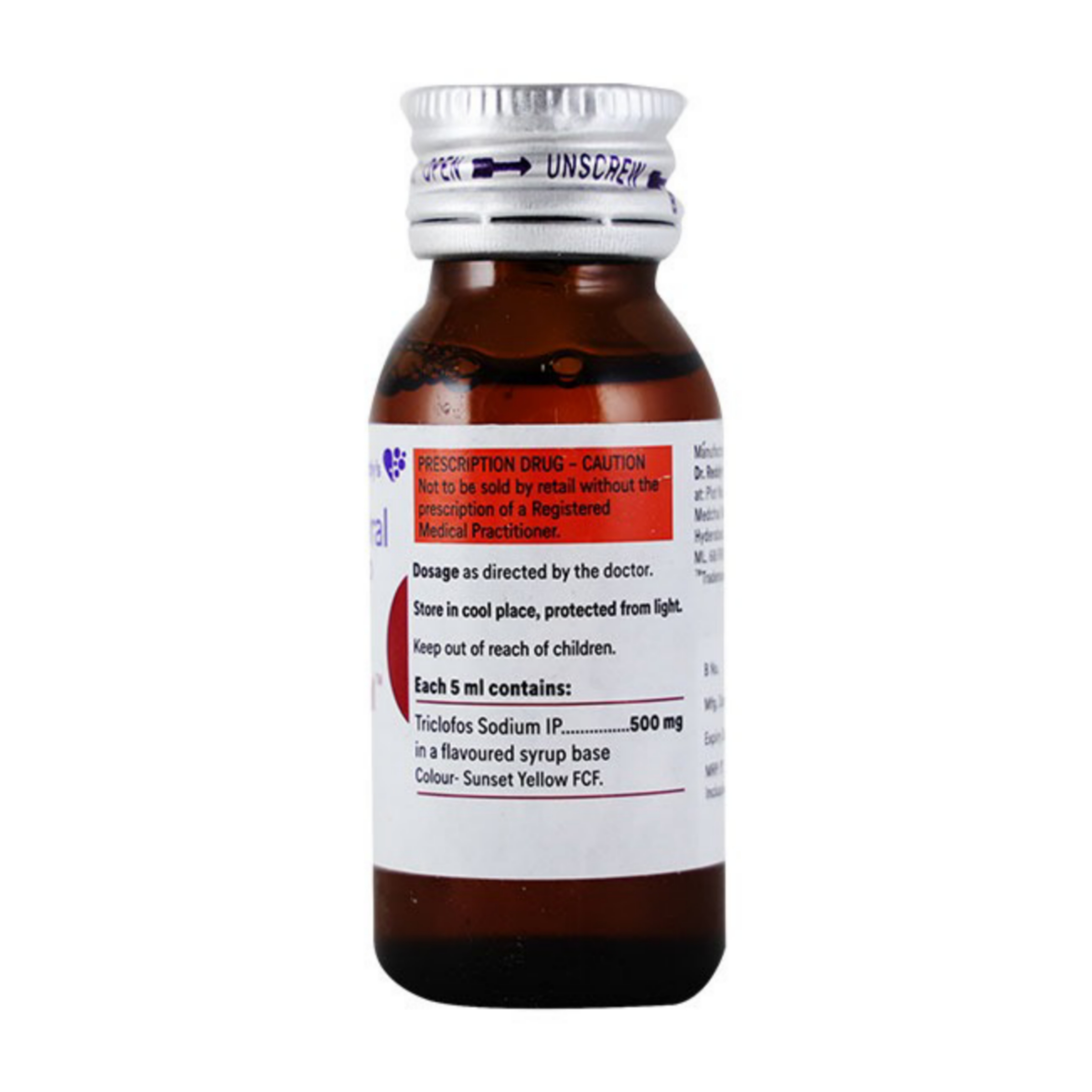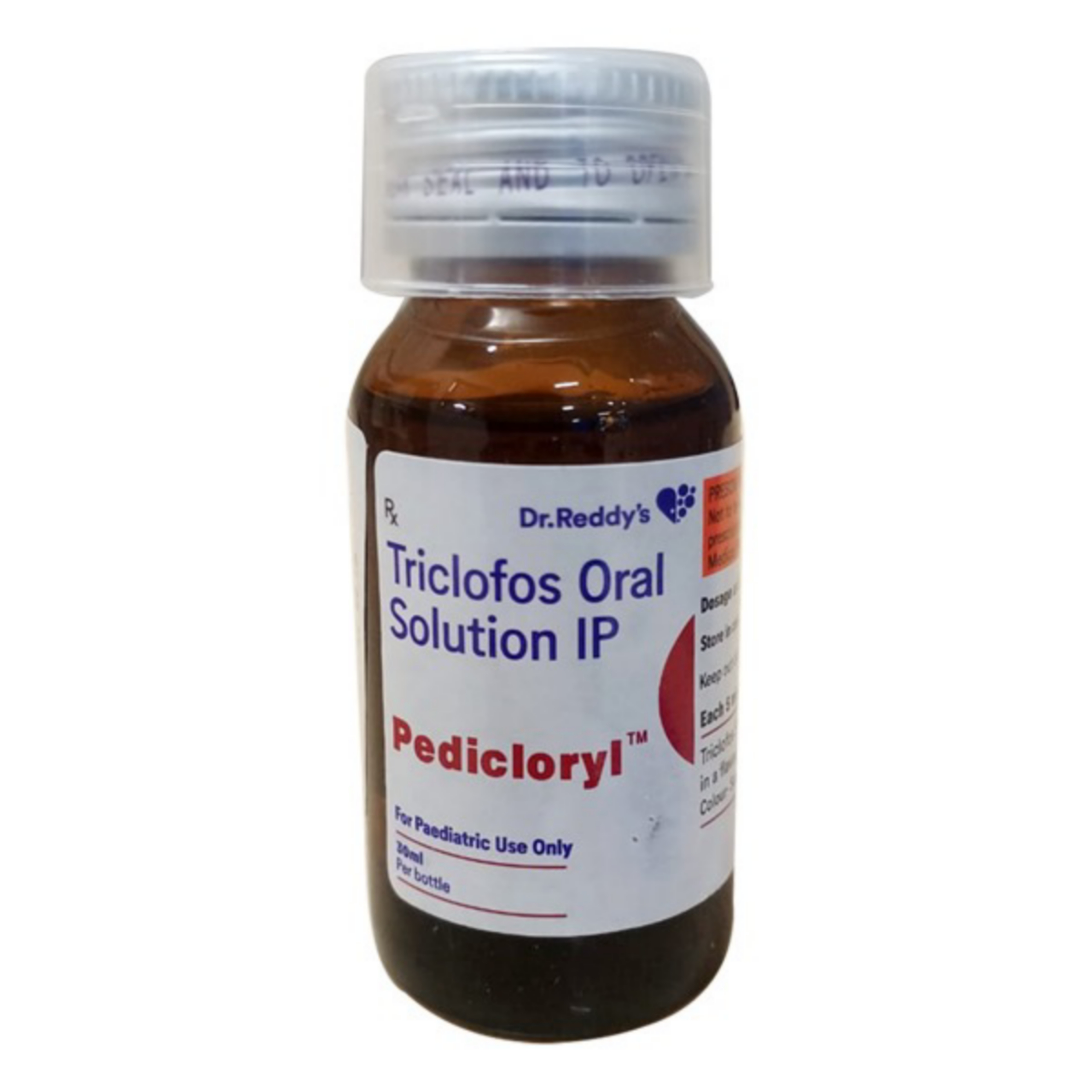

Manufactured By DR REDDY LAB.-1142
Pedicloryl Oral Solution is primarily given for the short-term treatment of conditions like insomnia in children. It also helps reduce pain and anxiety before a medical procedure by inducing sleep.
Give Pedicloryl Oral Solution to your child orally, preferably before the child retires to bed, either before or after food as advised by the doctor. The dose of Pedicloryl Oral Solution will depend on your child’s clinical condition and treatment response. As Pedicloryl Oral Solution remains active in the body for many hours, your child may experience drowsiness the next day as well. Your child may also feel uncomfortable or nauseated after the intake of Pedicloryl Oral Solution. In case your child vomits within 30 minutes of the medicinal intake, give another dose once your child calms down. However, do make sure not to double up the dose. Consult your doctor if your child experiences difficulty sleeping even after taking the first dose or if your child wakes up in the night or early in the morning.
Never use Pedicloryl Oral Solution to sedate your child regularly under normal circumstances. This medicine should be used only if a child has to undergo a medical procedure where sedation is required. This medicine is generally suitable for short-term use. Using it in high doses or for prolonged duration may cause dependence. Also, your child’s body may become tolerant to this medicine as a result of which higher doses may be needed to achieve the effect. Do not abruptly stop the medicine even if your child starts showing signs of improvement as stopping it suddenly may cause withdrawal symptoms.
The intake of this medicine may cause minor and temporary side effects in some children. These include nausea, vomiting, drowsiness, and impaired coordination. These side effects usually go away once your child’s body adapts to the medicine. However, in case they persist for long or start bothering your child, you must consult your child’s doctor without any delay.
Your child’s doctor must be aware of your child’s entire medical history, including any previous episode of allergy, heart problem, liver impairment, and kidney malfunction. This will guide the doctor in planning your child’s overall treatment.